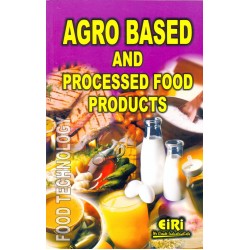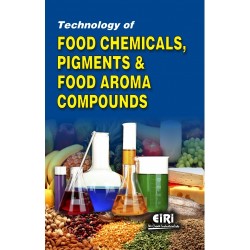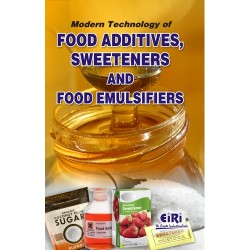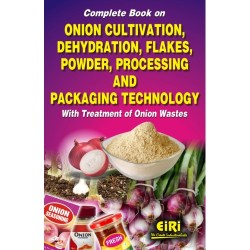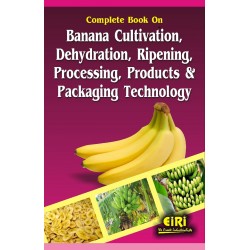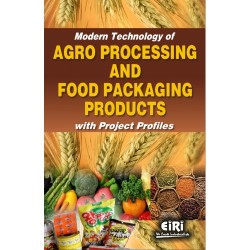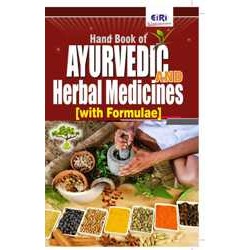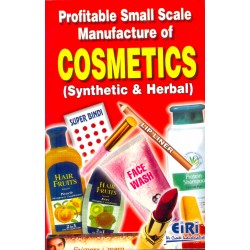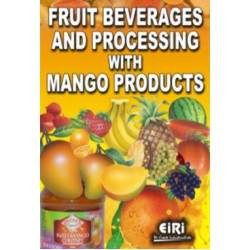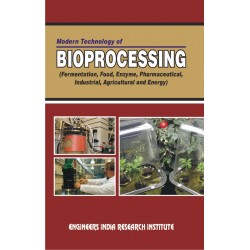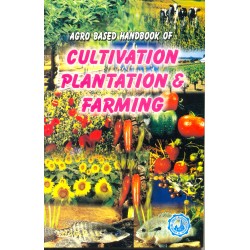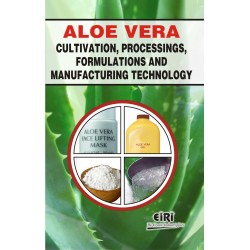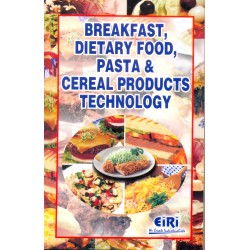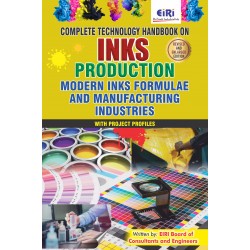Modern Technology of Food Additives, Sweeteners and Food Emulsifiers (hand book)
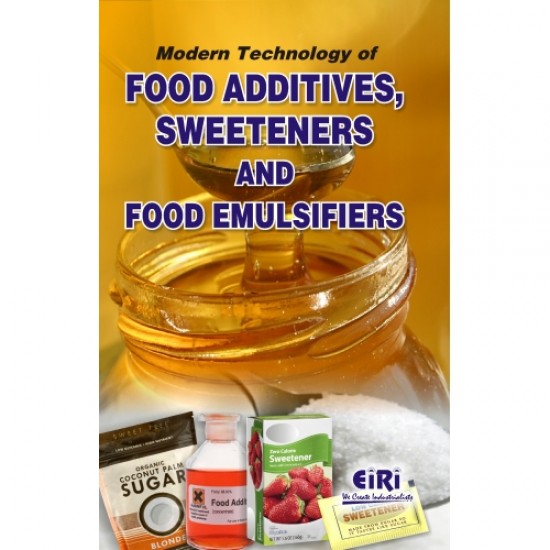



- More than 40 years of experience
- Managed by expert industrial consultants
- ISO 9001-2015 Certified
- Registered under MSME, UAM No: DL01E0012000
- 24/5 Research Support
Get your quesries resolved from an industry expert. Ask your queries before report or book purchase. - Custom Research Service
Speak to the our consultant to design an exclusive study to serve your research needs. - Quality Assurance
All reports are prepared by highly qualified consultants & verified by a panel of experts. - Information Security
Your personal & confidential information is safe & secure.
The book Modern Technology of Food Additives, Sweeteners and Food Emulsifiers covers Product Information, Biochemical Pathways for the Production of Flavour Compounds in Cheeses during Ripening, Sweetner (Natural Mixed), Artificial Sweeteners, Alternative Sweeteners, Stevia (Stevia rebaudiana) a Bio sweetener, Profiles of Sweeteners in Aqueous Solutions, Effect of Different Sweeteners in Low Calorie Yogurts, Effect of Dietetic Sweeteners on the Quality of Cookies, Rosogolla with Alternative Sweetener, Carbohydrate and Intense Sweeteners, Additives (Character), Food Additive, Food Additive having Carraghenate, Allium Thiosulinates: Chemistry, Biological Properties and their Potential Utilization in Food Preservation, Hydrocolloids in Food Industry, Xanthan Gum, Guar Foaming Albumin A Foam Stabillizer, Stabilizer Blends and their importance in ice cream industry, Evaluation of Gelling Properties of Tamarind Seed, Lecithin, the Multipurpose Emulsifier for Foods, Significance of emulsifiers and Hydrocolloids in Bakery Industry, Emulsifier of Food , Hydrated Emulsifier, Powder Emulsifier, Biocompatible emulsifier, Starches as Thickeners.
PRODUCT INFORMATION
Why are food additives used?
Where do food additives come from?
Plant sources
Nature-identical products
Modified Natural Substances
Man made products
How is the safety of food additives evaluated in the European Union?
Intolerance to food additives
Categories
Acids
Acidity regulators
Articaking agents
Antifoaming agents
Antioxidants
Bulking agents
Food coloring
Color retention agents
Emulsifiers
Flavors
Flavor enhancers
Flour treatment agents
Glazing agents
Humectants
Tracer gas
Preservatives
Stabilizers
Sweeteners
Tickeners
Sweeteners
Artificial or intense sweeteners
Bulk sweeteners
Sweeteners in food
Slimming and Sweeteners
Emulsifiers
What are emulsions
Emulsifiers in food
How Emulsifiers Work
Origin and manufacture of emulsifiers
BIOCHEMICAL PATHWAYS FOR THE PRODUCTION OF FLAVOUR COMPOUNDS IN
CHEESES DURING RIPENING
Metabolism of lactose, lactate and citrate
D-(+)Lactate
L-(+)-Lactate
Lipolysis and metabolism of fatty acids
Proteolysis and related events
Bitterness and other off flavours
Calabolism of Amino Acids and Related Events
Production of amines and pyrazines
Deamination and formation of neutral or acidic compounds
Transamination, the Strecker reaction and production of aldehydes
Catabolism of sulphur amino acids
Catabolism of phenylalanine, tyrosine and tryptophan
Catablism of arginine, aspartate, glutamate, andthreonine
Catabolism of branched chainamino acids
Conclusion
SWEETNER (NATURAL MIXED)
ARTIFICIAL SWEETENERS
Sucrose to glucose forenergy
Sugar Substitutes Sweeteners
Sweet Taste Is There A Distinction Between Artificial or Natural?
Research, regulation and the FDA-current approved artificial sweeteners
Neotame
Alternative Sweeteners
Future Sweeteners
ALTERNATIVE SWEETENERS
Cyclamate
Aspartame
Neohesperidan Dihydrochalcone
Miraculin
Monellin
Thaumatin I,II
STEVIA (STEVIA REBAUDIANA) A BIOSWEETENER)
Chemical constituents
Proximate composition of Stevia
Physiological and pharmacological actions
Human studies
Cariogenic and mutagenic effects
Stevia products
Medicinal values
Uses of Stevia
Conclusion
PROFILES OF SWEETENERS IN AQUEOUS SOLUTIONS
Material and Methods
Statistical Analysis
Results and Discussion
Conclusions
EFFECT OF DIFFERENT SWEETENERS IN LOW CALORIE YOGURTS
Artificial Sweeteners
Types of Artificial sweeteners
Aspartame
Acesulfame aspartame
Saccharin
Cyclamate
Sucratose
Accepted daily intake
Final Considerations
EFFECT OF DIETETIC SWEETENERS ON THE QUALITY OF COOKIES
Materials and Methods
Procurement of samples
Proximate analysis of wheat flour
Preparation of cookies
Analysis of cookies
Physical analysis
Sensory evaluation
Chemical analysis
Gross energy value
Statistical analysis
Results and Discussion
Chemical composition of wheat flour
Sensory evaluation of cookies
Physical tests of cookies
Chemical analysis of cookies
Calorific value of cookies
Conclusion
ROSOGOLLA WITH ALTERNATIVE SWEETENER
Materials and Methods
Preparation of Coagulant for Chhana
Preparation of Chhana for Rosogolla
Preparation of Control Rosogolla
Preparation of Experimental Rosogolla
Physico-Chemical Analysis
Sensory Evaluation
Consumer Preference
Cost Estimation
Experimental Design
Results And Discussion
Texture Analysis of Rosogolla
Hardness
Cohesiveness
Springiness
Gumminess
Chewiness
Yield of Rosogolla
Colour Score
Flavour Score
Taste Score
Mouthfeel
Overall Acceptibility
Shelf life Report
Cost Estimation
Conclusion
CARBHYDRATE AND INTENSE SWEETENERS
Carbohydrate sweeteners
Sucrose
Glucose syrups/highfructose glucose syrups
Fructose (levulose)
Overview-Intense sweeteners
Sweetener approval
Labelling
Main intense sweeteners in use in soft drinks
Stability
Temperature
Phenylketonuria
Regulatory
Salt of aspartame and acesulfame
Alitame
Cyclamate
Sucralose
Neotame
Saccharin
Stevioside
New sweeteners/bulking agents used in soft drinks
The future
ADDITIVES (CHARACTER)
Antioxidants
Antioxidants
Preservatives
Emulsifiers and Stabilizers
Food Colours
Some Dyestuff Food Colours in Current use
Natural or Nature Identical Food Colours
Natural Colors for Beverages
Flavour Components of Herbs and Spices
Sequestrants
Anticaking agents
Acids, Buffers, and Bases
Humectants
Firming and Crisping
Agents
Sweeteners
Enzymes
Nutritive Additives
Vitamins
Trace Elements
Minerals
Essential Amino Acids
Essential Amino Acids
Essential Amino Acids
Flour and Bread Additives
FOOD ADDITIVE
Classification of food additives
Acidity regulator
Anti-caking agents
Antifoaming agents
Antioxidants
Some popular antioxidant foods
Antioxidant vitamins
Ascrbic acid -E300
Antioxidants benefits
Bulking agents
Colour retention agents
Colouring
Emulsifiers
Emulsifying salt
Firming agents
Flavors
Flavor enhancers
Flour treatment agents
Food acids
Gelling agents
Glazing agents
Humectants
Mineral salts
Preservatives
Propellants
Seasonings
Sequestrants
Stabilizers
Sweeteners
Commonly used sweeteners
Thickeners
Tracer gas
Vegetable gums
'E' numbering
Dangers of fod additives and preservatives
Effects of food additives
Cytotoxic effects of food additives
Food additives and safety
Conclusion
Colour additive to avoid
Flavourings & sweeteners to avoid
FOOD ADDITIVE HAVING CARRAGHENATE
Preparation of an Additive Subject of the method
Preparing a Fine Paste
Preparation of a Paste
ALLIUM THIOSULFINATES CHEMISTRY, BIOLOGICAL PROPERTIES AND THEIR POTENTIAL UTILIZATION IN FOOD PRESERVATION
Chemical Structure and Biosynthesis of Thiosulfinates
Chemical Structure of Other Organosulfur Compounds
Antibacterial Properties
Antifungar Properties
Antioxidant Properties
Concluding Remarks
HYDROCOLLOIDS IN FOOD INDUSTRY
Functional properties
Viscosity enhancing or thickening properties
Gelling properties
Surface activity and emulsifying properties
Hydrocolloids as edible films and coatings
Hydrocolloids as fat replacers
Origins and structures of hydrocolloids
Plant hydrocolloids
Hemicelluloses
b-DGlucans
Pectins
Exudate gums
Gum arabic
Tragacanth gum
Gum karaya
Gum ghatti
Mucilage gums
Psyllium gum
Yellow mustard mucilage
Flaxseed mucilage
Fructans
Seaweed hydrocolloids
Alginates
Carrageenans
Agar
Microbial hydrocolloids
Xanthan gum
Pullulan
Gellan gum
Animal hydrocolloids
Chitin and chitosa
Gelatin
Chemiclly modified hydrocolloids
Hydrocolloids in the production of special products
Soft gelatin capsules
Liquid core capsules
Jelly like foods
Fruit products
Frozen product
Candies
Fabricated foods
Health benefits of hydrocolloids
Hydrocolloid and the risk of cardiovascular disease (CVD)
Hydrocolloids and type 2 diabetes
Hydrocolloids as laxative and antidiarrhea
XANTHAN GUM
Chemistry and Structure of Xanthan Gum
Toxicology, safety and regulatry Status
Prperties of Xanthan Gum
Xanthan gm in food Applications
Bakery Products
Beverages
Dairy
Dressings
Pet Food
Syrups, Toppings, Relishes and Sauces
GUAR FOAMING ALBUMIN A FOAM STABILIZER
Materials and methods
Materials
Foaming Studies
Bubble size measurement
Enzyme-linked immunosorbent assay
Results and discussion
Effect of Nacl addition
Bubble size distribution
Immunological analysis
STABILIZER BLENDS AND THEIR IMPORTANCE IN ICE CREAM INDUSTRY
Formulation of Different Stabilizer Blends
Gelatin
Guar Gum
Locust Bean Gum
Carrageenan
Alginates
Xanthan Gum
Relationship Between ice cream composition and stabilizer concentration
ENVALUATION OF GELLING PROPERTIES OF TAMARIND SEED
Materials and methods
Extraction of mucilage from tamarind seeds
Phytochemical Examination
Physicochemical characterization of mucilage
Determination of viscosity
Characterization of TSP
Evaluation of gelling property of the gels
Results and Discussions
Phytochemical characterization of TSP
Spectroscopy analysis
Conclusion
LECITHIN, THE MULTIPURPOSE EMULSIFIER FOR FOODS
The Occurrence in Living Matter
The Extraction of Lecithin by Man
The Practical Use of Lecithin by Man
The Return of Lecithin to Liing Matter
SIGNIFICANCE OF EMULSIFIERS AND HYDROCOLLOIDS IN BAKERY INDUSTRY
Emulsifiers
Role of emulisifiers in manufacture of baked goods
Bakery applications of selected emulsifiers
Hydrocoloids
Role of hydrocolloids in manufacture of baked goods
Bakery applications of selected hydrocolloids
Tree gum exudates
Algal sources
Seeds
Microbial sources
Modified polysaccharides
Animal sources
Conclusion
EMULSIFIER OF FOOD
Preparation
HYDRATED EMULSIFIER
Method 1
Method 2
Method 3
POWDER EMULSIFIER
Specific Embodiments of the method
Conclusions
BIOCOMPATIBLE EMULSIFIER
STARCHES AS THICKENERS
Materials and methods
Starches
Preparation and frozen storage of the white sauces
Rheological behaviour
Linear viscoelastic properties of white sauces
Syneresis of white sauces
Data treatment
Results and discussion
Starch pasting properties in the white sauces
Starch source
shearing speed
Linear viscoelastic properties
Freshly prepared sauces
Freeze/thaw stability of sauces
Sauce syneresis
Conclusin
How to Make Project Report?
Detailed Project Report (DPR) includes Present Market Position and Expected Future Demand, Technology, Manufacturing Process, Investment Opportunity, Plant Economics and Project Financials. comprehensive analysis from industry covering detailed reporting and evaluates the position of the industry by providing insights to the SWOT analysis of the industry.
Each report include Plant Capacity, requirement of Land & Building, Plant & Machinery, Flow Sheet Diagram, Raw Materials detail with suppliers list, Total Capital Investment along with detailed calculation on Rate of Return, Break-Even Analysis and Profitability Analysis. The report also provides a birds eye view of the global industry with details on projected market size and then progresses to evaluate the industry in detail.
We can prepare detailed project report on any industry as per your requirement.
We can also modify the project capacity and project cost as per your requirement. If you are planning to start a business, contact us today.
Detailed Project Report (DPR) gives you access to decisive data such as:
- Market growth drivers
- Factors limiting market growth
- Current market trends
- Market structure
- Key highlights
Overview of key market forces propelling and restraining market growth:
- Up-to-date analyses of market trends and technological improvements
- Pin-point analyses of market competition dynamics to offer you a competitive edge major competitors
- An array of graphics, BEP analysis of major industry segments
- Detailed analyses of industry trends
- A well-defined technological growth with an impact-analysis
- A clear understanding of the competitive landscape and key product segments
Need Customized Project Report?
- Ask for FREE project related details with our consultant/industry expert.
- Share your specific research requirements for customized project report.
- Request for due diligence and consumer centric studies.
- Still haven't found what you're looking for? Speak to our Custom Research Team
About Engineers India Research Institute:
Note: We can also prepare project report on any subject based on your requirement and country. If you need, we can modify the project capacity and project cost based on your requirement.
Our Clients

Our Approach
- Our research reports comprehensively cover Indian markets (can be modified as per your country), present investigation, standpoint and gauge for a time of five years*.
- The market conjectures are produced on the premise of optional research and are cross-accepted through associations with the business players
- We use dependable wellsprings of data and databases. What's more, data from such sources is handled by us and incorporated into the report
Why buy EIRI reports?
- Our project reports include detailed analysis that help to get industry Present Market Position and Expected Future Demand.
- Offer real analysis driving variables for the business and most recent business sector patterns in the business
- This report comprehends the present status of the business by clarifying a complete SWOT examination and investigation of the interest supply circumstance
- Report gives investigation and top to bottom money related correlation of real players/competitors
- The report gives gauges of key parameters which foresees the business execution





















